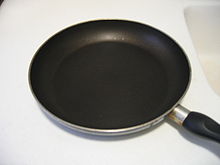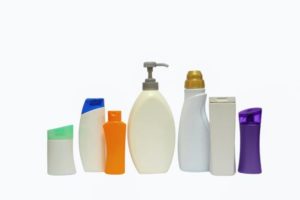 Increasing fruit and fruit juice consumption during pregnancy leads to better cognitive development in babies? New research found that six or seven servings of fruit or fruit juice a day prenatally was associated with 6 or 7 points higher IQ at one year of age. Interestingly, fruit flies show a similar effect. But postnatal (after birth) fruit intake did not enhance cognitive outcomes in human babies or Drosophila fruit flies. But now, will these results in the babies hold up over time?
Increasing fruit and fruit juice consumption during pregnancy leads to better cognitive development in babies? New research found that six or seven servings of fruit or fruit juice a day prenatally was associated with 6 or 7 points higher IQ at one year of age. Interestingly, fruit flies show a similar effect. But postnatal (after birth) fruit intake did not enhance cognitive outcomes in human babies or Drosophila fruit flies. But now, will these results in the babies hold up over time?
The US Department of Agriculture (USDA) and US Department of Health and Human Services recommend 2 cups (3–4 servings) of fruit per day for active women. One cup of fruit (2 servings) consists of either 1 cup of raw or cooked fruit, 1 cup (8 oz) of 100% fruit juice, or a small whole fruit. Note that the results of the study support an increased consumption of fruit to 6–7 servings or 3 cups per day for pregnant women.From Science Daily:
Prenatal fruit consumption boosts babies' cognitive development
The benefits of eating fruit can begin as early as in the womb....The study, published in the journal EbioMedicine, found that mothers who consumed more fruit during pregnancy gave birth to children who performed better on developmental testing at one year of age. Piush Mandhane, senior author of the paper and associate professor of pediatrics at the University of Alberta's Faculty of Medicine & Dentistry, made the discovery using data from the Canadian Healthy Infant Longitudinal Development (CHILD) Study--a nationwide birth cohort study involving over 3,500 Canadian infants and their families.
"We wanted to know if we could identify what factors affect cognitive development," Mandhane explains. "We found that one of the biggest predictors of cognitive development was how much fruit moms consumed during pregnancy. The more fruit moms had, the higher their child's cognitive development."
The study examined data from 688 Edmonton children, and controlled for factors that would normally affect a child's learning and development such as family income, paternal and maternal education, and the gestational age of the child. Using a traditional IQ scale as a model, the average IQ is 100 and the standard deviation is 15; two thirds of the population will fall between 85 and 115. Mandhane's study showed that if pregnant mothers ate six or seven servings of fruit or fruit juice a day, on average their infants placed six or seven points higher on the scale at one year of age.
To further build on the research, Mandhane teamed with Francois Bolduc, an associate professor in the Faculty of Medicine & Dentistry's Division of Pediatric Neurology, who researches the genetic basis of cognition in humans and fruit flies....."Flies are very different from humans but, surprisingly, they have 85 per cent of the genes involved in human brain function, making them a great model to study the genetics of memory," says Bolduc....In a subsequent series of experiments, he showed that flies born after being fed increased prenatal fruit juice had significantly better memory ability, similar to the results shown by Mandhane with one-year-old infants. He believes it suggests that brain function affected by fruit and the mechanisms involved have been maintained through evolution, and conserved across species.

 That a male's preconception behaviors and exposure to all sorts of environmental contaminants (alcohol, drugs, medicines, chemicals at work, pesticides, etc) has effects on sperm and is linked to birth defects has been known for decades. What is new is the focus on epigenetics, or as some researchers call it: inherited paternal epigenetics. Three different paternal influences that affect the fetus and child (thus paternal experiences influence what the child inherits) are
That a male's preconception behaviors and exposure to all sorts of environmental contaminants (alcohol, drugs, medicines, chemicals at work, pesticides, etc) has effects on sperm and is linked to birth defects has been known for decades. What is new is the focus on epigenetics, or as some researchers call it: inherited paternal epigenetics. Three different paternal influences that affect the fetus and child (thus paternal experiences influence what the child inherits) are  More evidence linking endocrine disrupting chemicals such as butyl paraben, triclocarbon, propyl paraben. with negative health effects (here linked to effects on the pregnancy and baby). It is especially important to try to lower exposure to endocrine disruptors during pregnancy. So read labels on all personal care products and avoid all parabens, phthalates, triclocarban, bisphenol-A (BPA), and triclosan - because what you use on your body will get into your body, From Medical Xpress:
More evidence linking endocrine disrupting chemicals such as butyl paraben, triclocarbon, propyl paraben. with negative health effects (here linked to effects on the pregnancy and baby). It is especially important to try to lower exposure to endocrine disruptors during pregnancy. So read labels on all personal care products and avoid all parabens, phthalates, triclocarban, bisphenol-A (BPA), and triclosan - because what you use on your body will get into your body, From Medical Xpress: Did you ever wonder about all the consumer products that have fragrances in them and whether they are safe to use? Think of all the fragrances in personal care products and perfumes, in air fresheners, scented soaps, cleaning products, scented candles, even laundry detergents, and scented dryer sheets.
Did you ever wonder about all the consumer products that have fragrances in them and whether they are safe to use? Think of all the fragrances in personal care products and perfumes, in air fresheners, scented soaps, cleaning products, scented candles, even laundry detergents, and scented dryer sheets. Coffee consumption overall seems to be beneficial to health in various ways, such as lowering the risk of colorectal cancer. But there are times one should limit how much one drinks, such as during the
Coffee consumption overall seems to be beneficial to health in various ways, such as lowering the risk of colorectal cancer. But there are times one should limit how much one drinks, such as during the  Most people know that heavy drinking of alcohol, smoking marijuana, cigarette smoking, and using methamphetamine during pregnancy should be avoided because they can have negative effects on the developing fetus. However,
Most people know that heavy drinking of alcohol, smoking marijuana, cigarette smoking, and using methamphetamine during pregnancy should be avoided because they can have negative effects on the developing fetus. However,  For years stores and manufacturers have promoted the advantages of Scotchgard and Teflon nonstick coatings for pots and pans, as stain-proofing for upholstered furniture and rugs, as a water repellent for clothing, for consumer goods such as dental floss, and for grease-proof food wrappers and containers. And yes, people have been convinced - with most cookware sold today being of the nonstick type, and the popularity of sofas and rugs coated with non-stain coatings. But once again, chemicals come with a price and health effects, and unfortunately these particular chemicals are found in all of us in varying levels.
For years stores and manufacturers have promoted the advantages of Scotchgard and Teflon nonstick coatings for pots and pans, as stain-proofing for upholstered furniture and rugs, as a water repellent for clothing, for consumer goods such as dental floss, and for grease-proof food wrappers and containers. And yes, people have been convinced - with most cookware sold today being of the nonstick type, and the popularity of sofas and rugs coated with non-stain coatings. But once again, chemicals come with a price and health effects, and unfortunately these particular chemicals are found in all of us in varying levels. Flame retardants. All around us, and in us. So, so hard to avoid because they're in electronic goods, in upholstered furniture, polyurethane foam, carpet pads, some textiles, the foam in baby items, house dust, building insulation, and on and on. And unfortunately, while a number of toxic flame retardants have been phased out, it appears that the new replacements may be just as bad and are more easily inhaled (the small particles go down the air tract and into the lung tissue).
Flame retardants. All around us, and in us. So, so hard to avoid because they're in electronic goods, in upholstered furniture, polyurethane foam, carpet pads, some textiles, the foam in baby items, house dust, building insulation, and on and on. And unfortunately, while a number of toxic flame retardants have been phased out, it appears that the new replacements may be just as bad and are more easily inhaled (the small particles go down the air tract and into the lung tissue). Once again, research shows that "BPA-free" plastic does not mean it is safer than BPA plastic. Both BPA and BPS (the usual replacement for BPA) leach estrogenic chemicals into the foods and beverages, which means negative health effects when ingested. Both BPA and BPS mimic the effects of estrogen, as well as the actions of thyroid hormone. Yes, this study was done on zebrafish, but think of them as "the canaries in the mine" - if it affects them, it could affect humans also, especially developing fetuses and young children.
Once again, research shows that "BPA-free" plastic does not mean it is safer than BPA plastic. Both BPA and BPS (the usual replacement for BPA) leach estrogenic chemicals into the foods and beverages, which means negative health effects when ingested. Both BPA and BPS mimic the effects of estrogen, as well as the actions of thyroid hormone. Yes, this study was done on zebrafish, but think of them as "the canaries in the mine" - if it affects them, it could affect humans also, especially developing fetuses and young children.